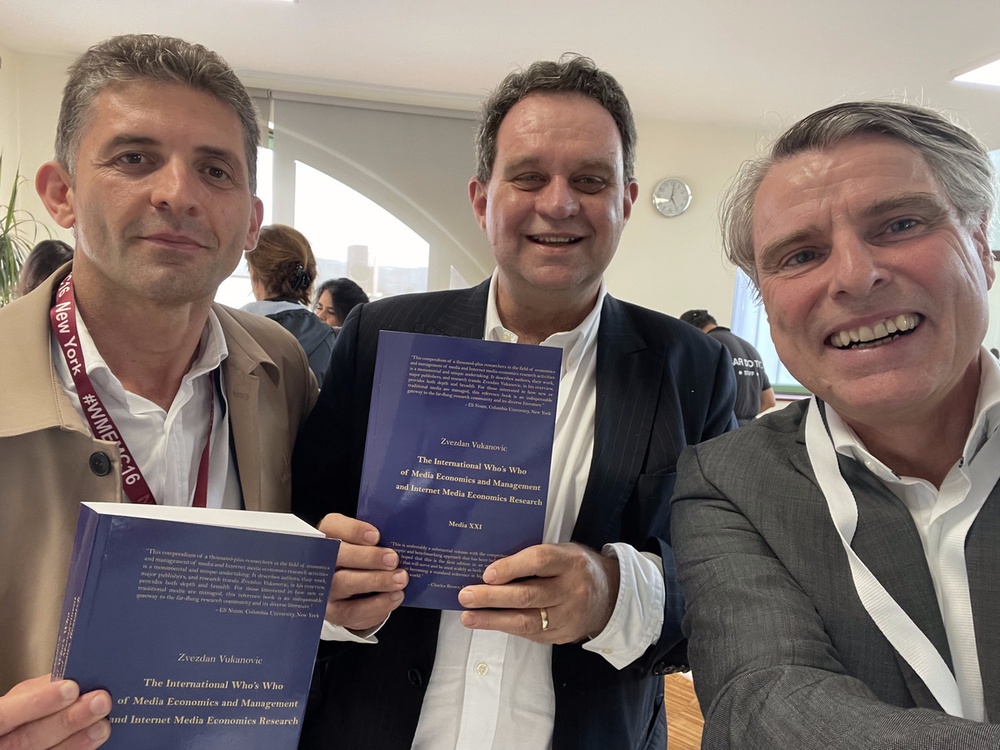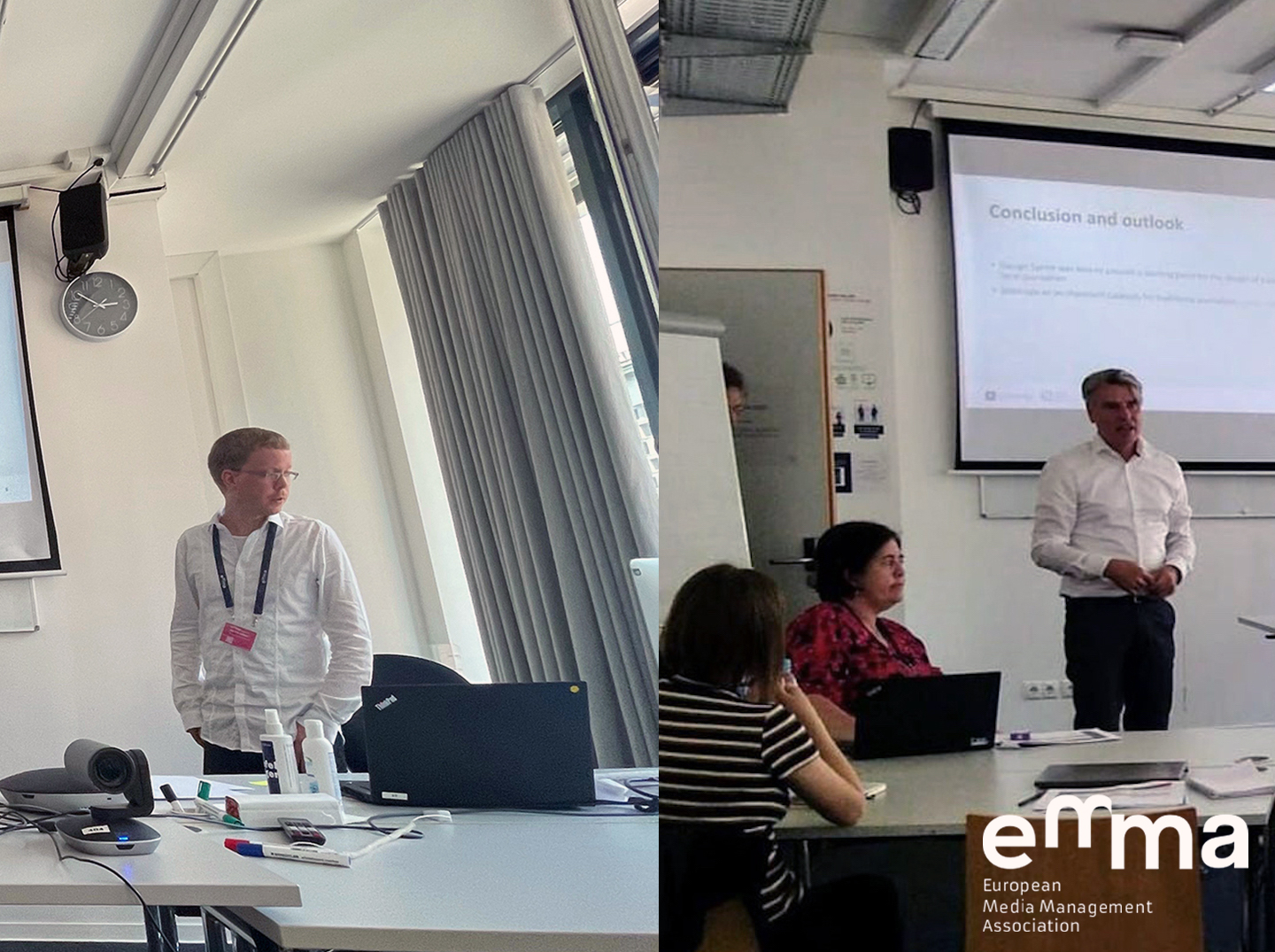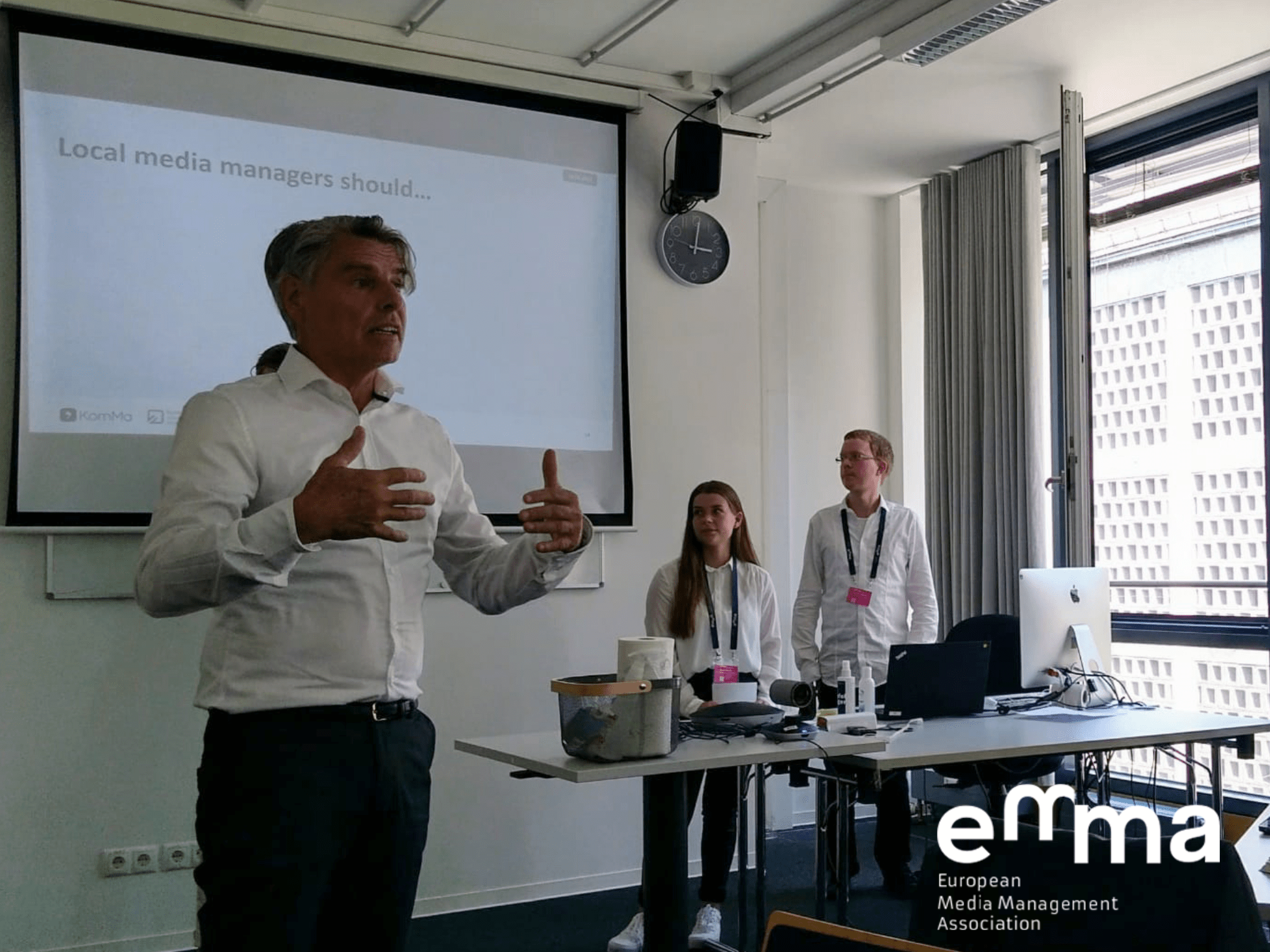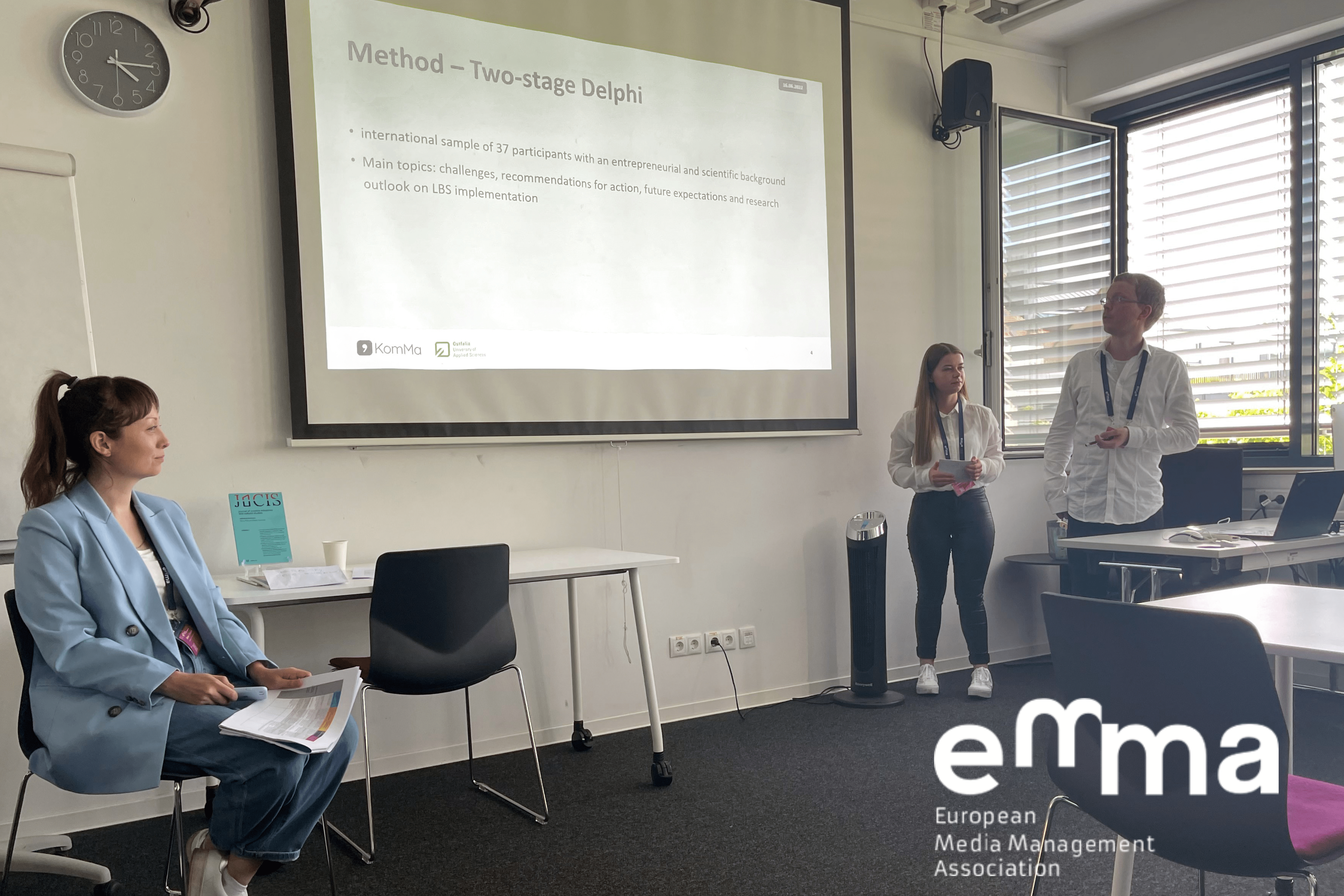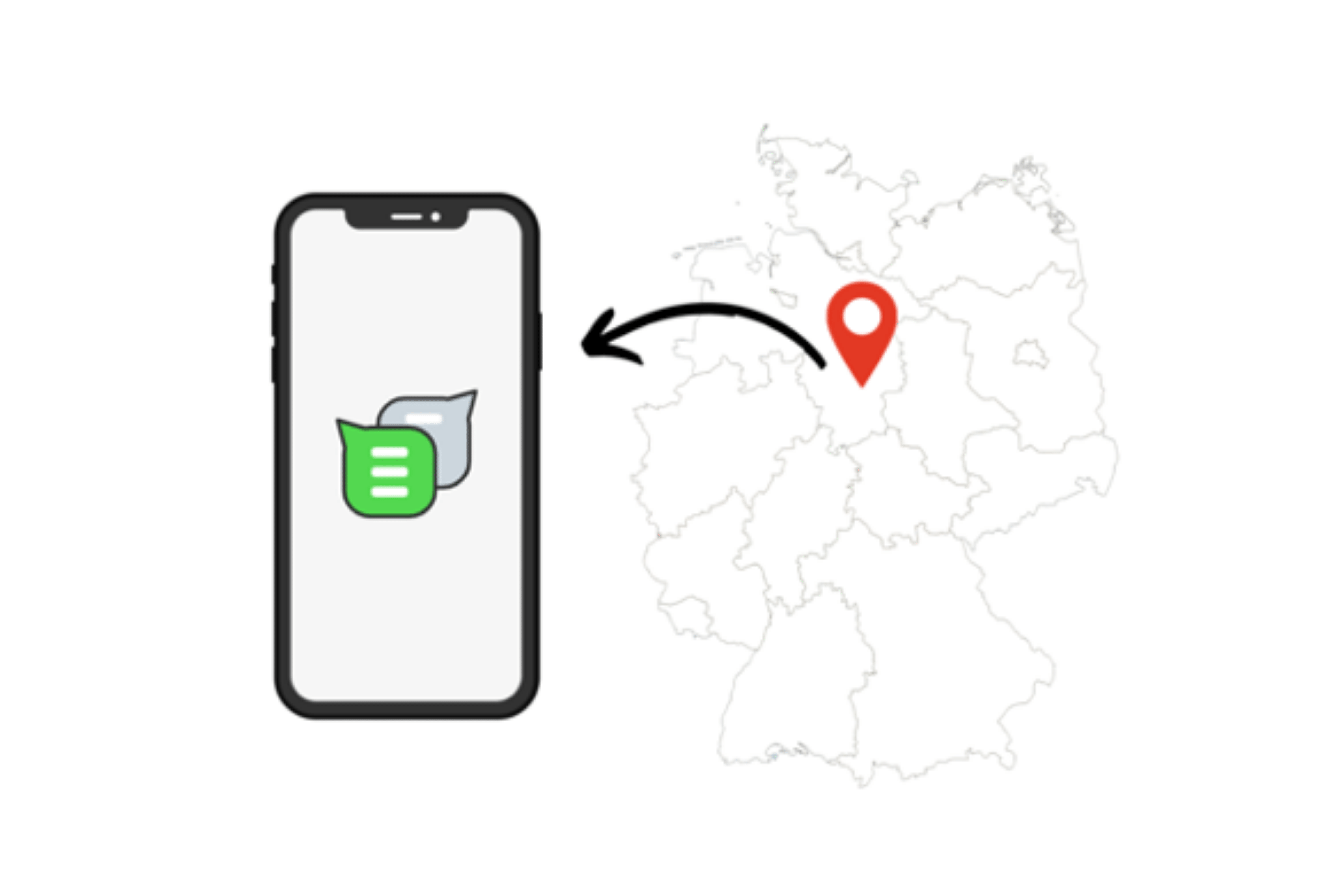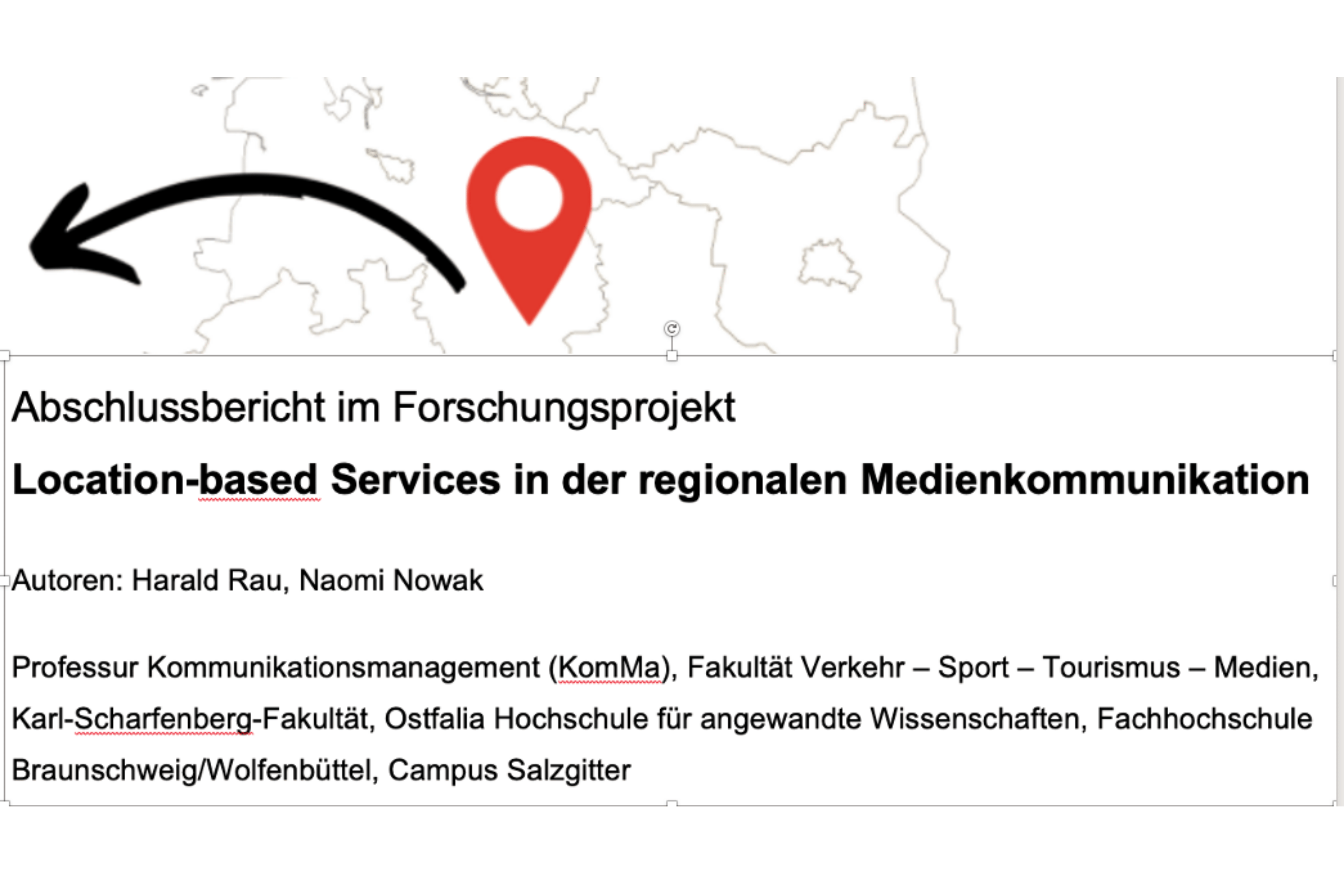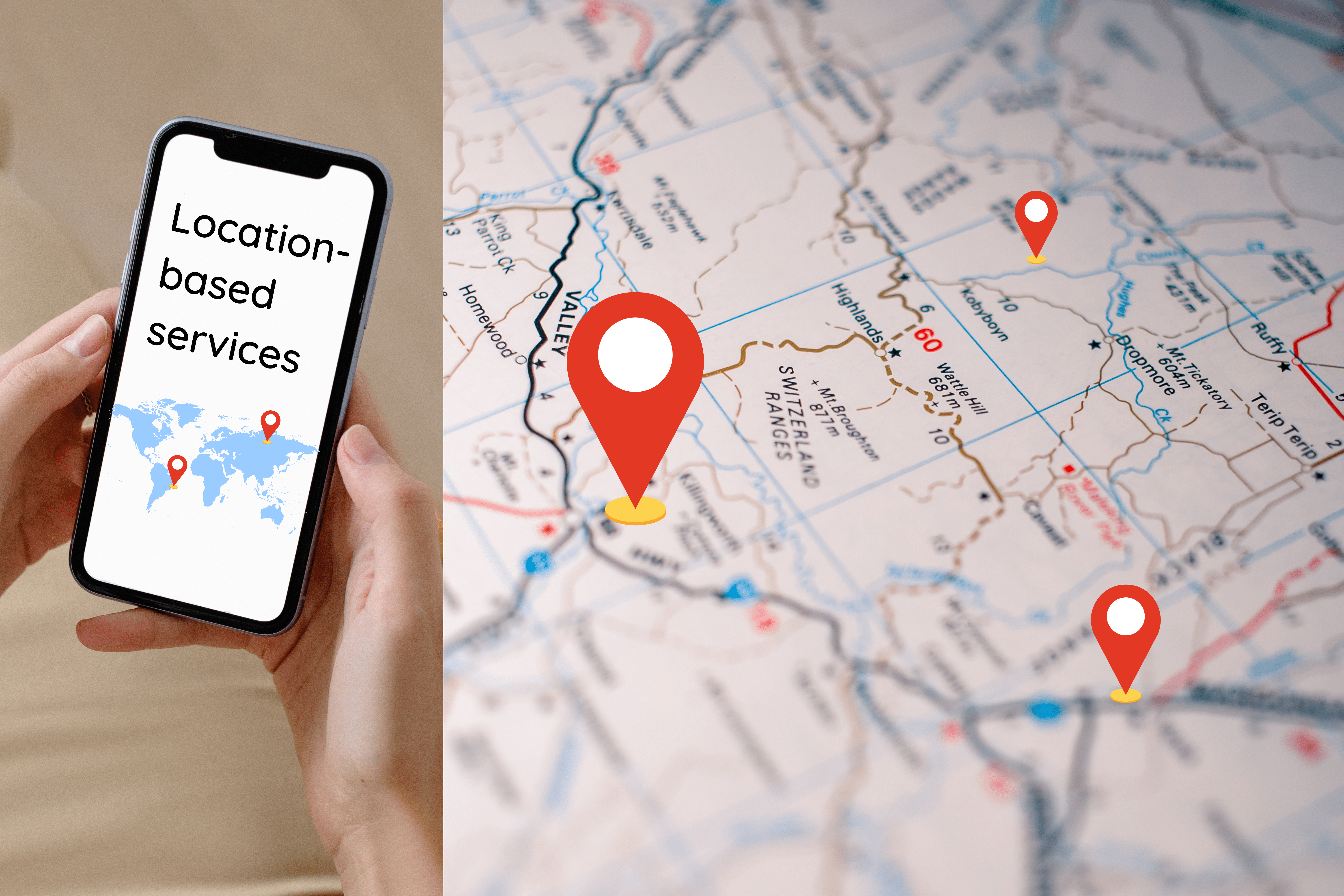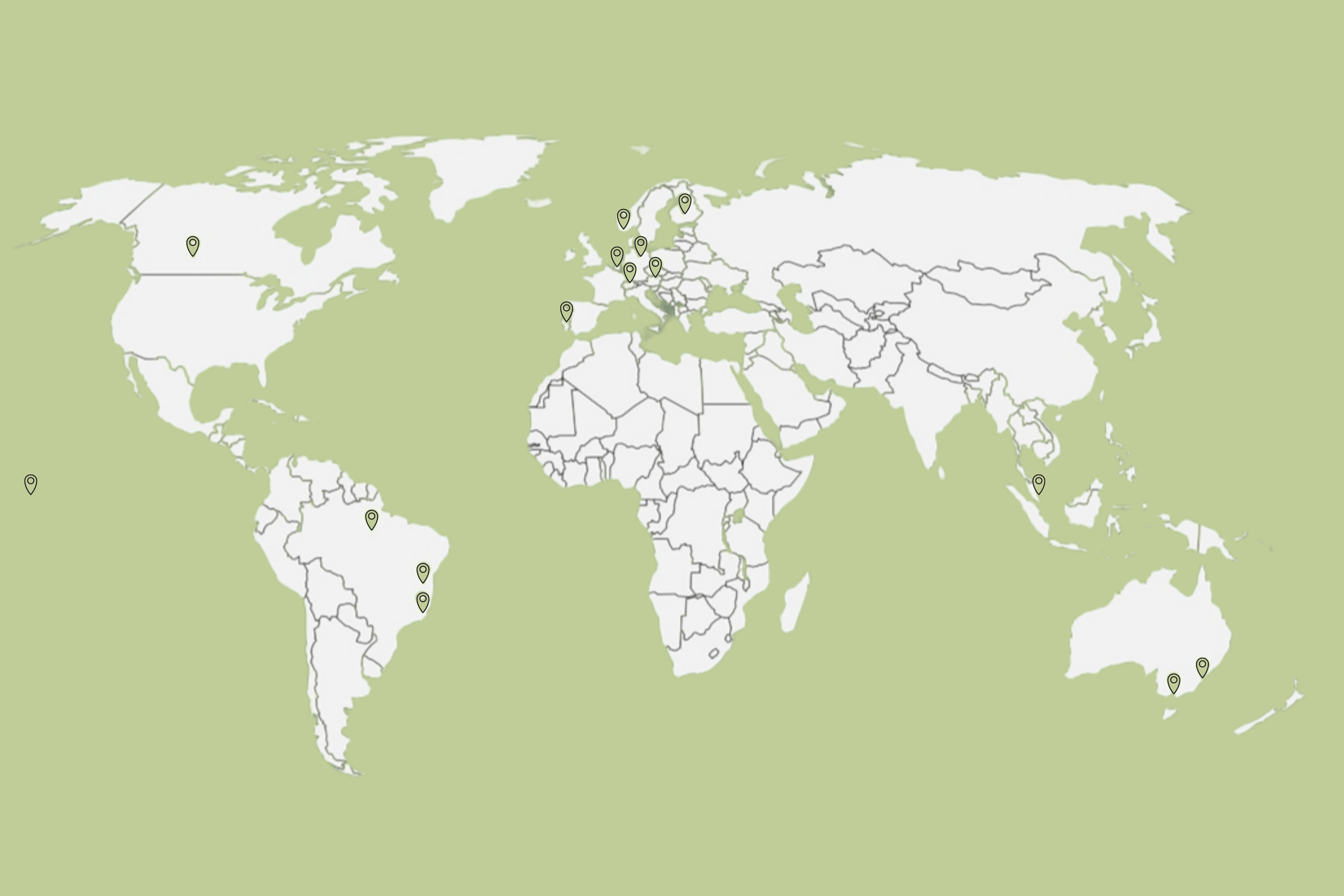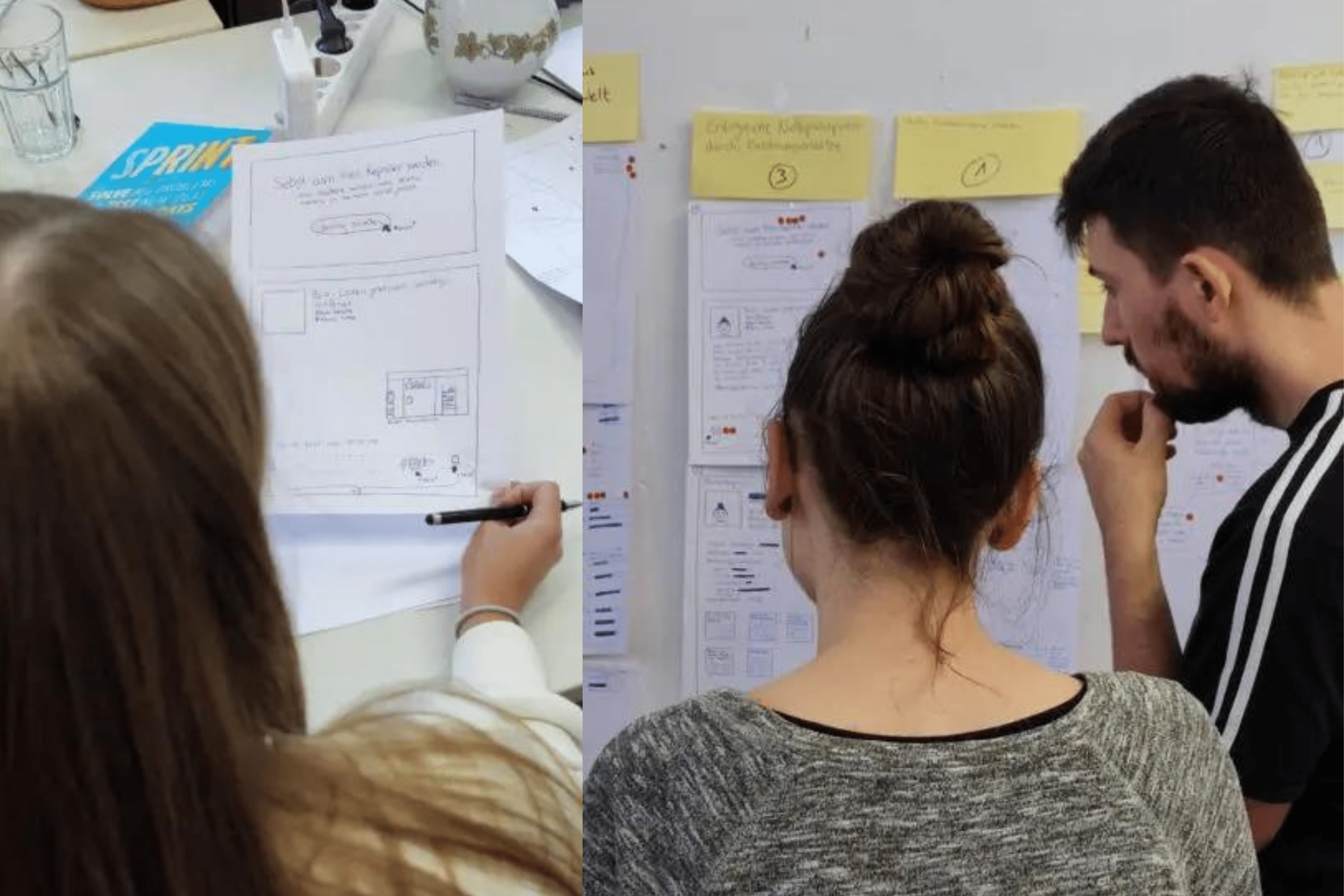Porto am Abend. Ein Hingucker. Dabei geht es in diesem Kurzbeitrag nicht um touristische Qualitäten eines der attraktivsten europäischen Reiseziele, sondern um eher Handfestes, genauer um die Frage, warum es eigentlich so schwer ist, im Feld Medienmanagement zu forschen? Es gibt zahlreiche Gründe dafür, warum es sich gerade hier schwieriger gestaltet als anderswo. Bei der Jahrestagung der IMMAA, der “International Media Management Academic Association” wurden auf KomMa-Initiative in diesem Jahr einige davon diskutiert. Dabei stand insbesondere der Umgang mit “publizistischen” Innovationen zur Diskussion. Denn an Beispielen lässt sich zeigen: Medieninnovationen kommen eher in nur einem der entscheidenden Märkte an, im Werbemarkt. Dabei ist dieser ja bekanntermaßen ein abgeleiteter, schließlich wird dort mehr oder weniger die Aufmerksamkeit und das Interesse der Nutzerinnen und Nutzer “vermarktet”. Am Ende bleiben auch für technische Entwicklungen und Innovationen zahlreiche Herausforderungen – mehr dazu in den angefügten Dateien.
Das internationale “Who is Who” in Medienwirtschaft und Medienmanagement
Heute kommt die KomMa-Buchempfehlung.
In mühevoller Kleinarbeit hat Zvezdan Vukanovic über 1000 Seiten mit einem Foschungs-Who-is-Who aus Medienwirtschaft und Medienmanagement gefüllt. Hintergründe, Forschungsprojekte, internationale Auftritte – alles versammelt in einem Kompendium, das in beeindruckender Weise eine vergleichsweise kleine Fachdisziplin in den Mittelpunkt rückt und sichtbar macht. Das führende Board der IMMAA der International Media Management Academic Association prüft auf Anregung ihres Ex-Präsidenten – des deutschen Professors Castulus Kolo (München) – aktuell zudem die Möglichkeit, die Inhalte digital und verlinkt zur Verfügung zu stellen. Das dürfte die Gesellschaft im internationalen Kontext der wissenschaftlich ambitionierten Medienökonomie noch größeres Gewicht verleihen.
Im Bild steht Autor Vukanovic links, in der Mitte Terry Flew, Professor an der Sydney University in Australien, rechts KomMa-Professor Harald Rau.
Nutzungsbereitschaft standortbasierter Nachrichtenapps: KomMa-Dissertationsvorhaben auf internationaler Fachtagung vorgestellt
Wie kann durch partizipative standortbezogene Dienste (sogenannte ‚Location-Based Services‘) eine erfolgreiche gesellschaftliche Medienkommunikation auf lokaler Ebene gelingen? Und welche Faktoren beeinflussen in diesem Zusammenhang die Partizipationsbereitschaft der Nutzer:innen in standorterfassenden Nachrichtenapps? Diesen und weiteren Fragen geht KomMa-Doktorand Per Ole Uphaus in seinem Dissertationsprojekt ‚Locative News‘ am Leibniz WissenschaftsCampus „Postdigitale Partizipation“ nach und knüpft damit inhaltlich an vorangegangene Studien des mittlerweile erfolgreich abgeschlossenen Projekts ‚Location-Based Services in der regionalen Medienkommunikation‘ an.
Auf der diesjährigen Tagung der European Media Management Association (emma2022) präsentierte Uphaus nun zusammen mit KomMa-Professor Harald Rau erstmals ein vorläufiges Modell zur Vorhersage der Partizipationsbereitschaft vor internationalen Expert:innen im Bereich Medienmanagement. Die emma gilt als eine der wichtigsten internationalen Fachtagungen im Bereich Medienmanagement in Europa und stellte für das KomMa-Team die ideale Plattform zur Diskussion der Thematik dar. Im Vorfeld konnte Uphaus zudem im Rahmen des von der Medienökonomieᴶᴿ organisierten PhD-Workshops weiteres Feedback anderer Doktorand:innen und erfahrener Forscher:innen sammeln, um dieses in den Forschungsprozess mit einfließen zu lassen.
Lokalnachrichten als Mittel zur Unterstützung des Lokaljournalismus im Rahmen der digitalen Transformation stellen in der internationalen Medienmanagement-Forschung ein äußerst relevantes Thema dar, weshalb sich der Vortrag perfekt somit auch perfekt in die diesjährige Ausrichtung der emma (Umstrukturierung der Medienindustrie) einfügte.
Das KomMa-Team bedankt sich bei den Organisatoren Castulus Kolo, Joschka Mütterlein und Florian Haumer, allen Teilnehmern der emma2022 für die großartige Konferenz, sowie Miriam Bernhard und Robin Riemann für die Organisation des PhD-Workshops.
Design-Sprint mit Journalismus-Plattform: KomMa präsentiert Ergebnisse auf internationaler Fachtagung
Design Sprints zur schnellen Entwicklung von Produkten und zur Erprobung neuer Geschäftsmodellideen gelten als besonders vielversprechende, moderne Methode. Einen solchen Design-Sprint führten Naomi Nowak und Per Ole Uphaus im Oktober vergangenen Jahres zusammen mit dem Berliner Startup ‚Cluster‘ durch – einer Exist-geförderten Plattform für nachhaltigen Journalismus – mit dem Ziel einen Prototypen für eine standortbezogene Nachrichten-App zu entwerfen und mit Nutzern zu testen. Der besondere Ansatz des Design-Sprints ermöglichte hierbei eine vergleichsweise besonders schnelle Prototypisierung und User Testing, indem monatelange Arbeit und umfangreiche Diskussionszyklen systematisch auf eine Woche verkürzt wurden.
Die Ergebnisse dieses Design-Sprints stellten Harald Rau, Naomi Nowak und Per Ole Uphaus aus dem KomMa-Team auf der diesjährigen Konferenz der European Media Management Association (emma2022) in München – einer der wichtigsten internationalen Fachtagungen im Bereich Medienmanagement in Europa – vor. Lokale Nachrichten als Mittel, um dem Lokaljournalismus in die digitale Transformation zu verhelfen, gelten in der internationalen Medienmanagement-Forschungsgemeinschaft als hochrelevantes Thema, sodass sich der Beitrag thematisch perfekt in den diesjährigen Rahmen der emma („Reorganization of Media Industries: Digital Transformation, Entrepreneurship, and Regulation“) einreihen konnte. Dies bestätigten auch die aufschlussreiche Diskussion mit dem Publikum im Anschluss an den Vortrag, sowie das Feedback während eines sogenannten ‚Paper Development Workshops‘, welcher ebenso einen festen Bestandteil der emma-Konferenz darstellt. Nach diversen Konferenzen, die zuletzt aufgrund der Corona-Pandemie entweder abgesagt wurden oder nur online stattfinden konnten, stellte die Tagung in München für alle Beteiligten eine besonders willkommene Gelegenheit des fachlichen Austauschs dar.
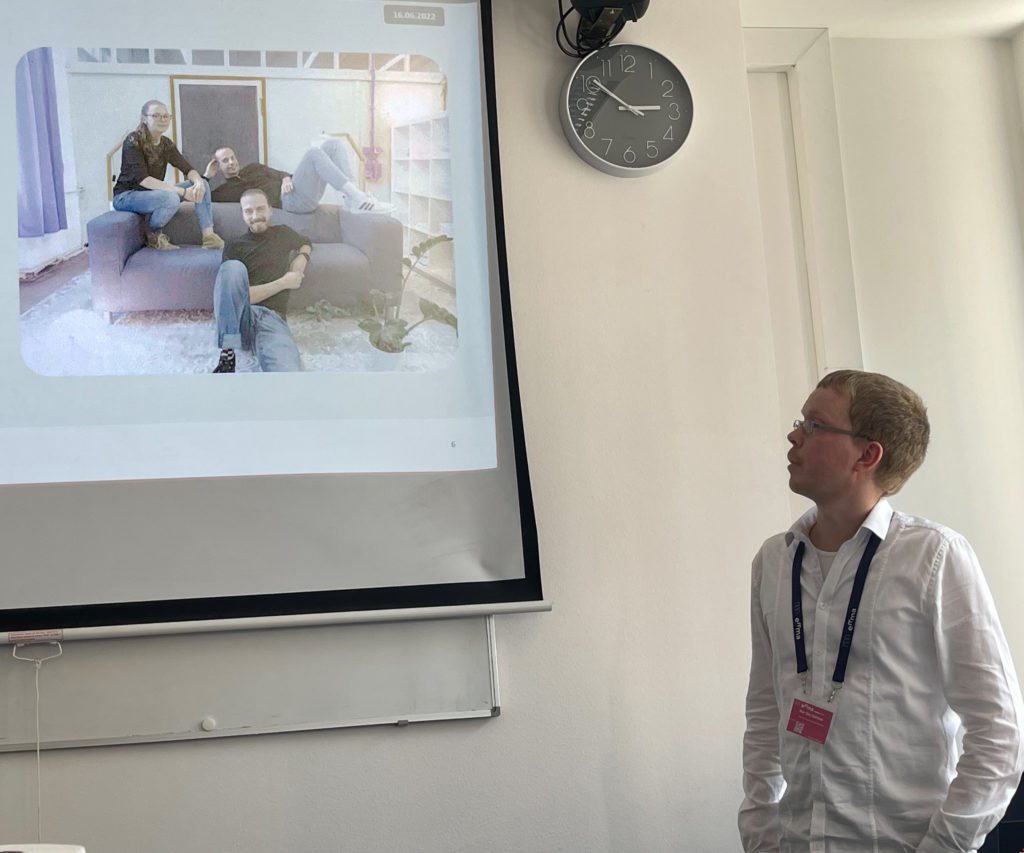
Interesse geweckt? Sie möchten mehr über die Forschung zu standortbezogenen Inhalten im Medienmanagement erfahren? Wenden Sie sich gerne an pe.uphaus@ostfalia.de!
Das KomMa-Team möchte sich bei den Organisatoren Castulus Kolo, Joschka Mütterlein und Florian Haumer sowie bei allen Teilnehmern der emma2022 für die eindrucksvolle Konferenz bedanken. Darüber hinaus gilt unser besonderer Dank Britta Gossel für ihren wertvollen Input während des Paper Development Workshops.
Hier finden Sie das Abstract zum vorgestellten Design-Sprint:
Abstract
Despite advancing globalization, users’ interests for news concerning their immediate surroundings remain high (Arnold & Wagner, 2018, p. 179), which is why localization technology appears to offer a win-win situation for both media companies and recipients (cf. Frith, 2018; Peters, 2016). However, so far only a very small number of news applications reflect this (Rau & Ehlers, 2018; Schmitz Weiss, 2013). The solution to close this gap might be presented by startups focusing on location-based technologies in local journalism. This contribution outlines the creation of a prototype for a location-based news app by applying a so-called design sprint to the Berlin journalism startup ‘Cluster’. In advance (and to prepare the setting for the sprint) a focus group discussion with local media managers was able to identify, that localizing technologies are of particular use for city districts, the participants saw a great potential for these technologies wherever the publishing houses focus on the readers’ realities by providing possibilities to participate (cf. Thiel & Fröhlich, 2017), as well as by using virtual reality (cf. Raper et al., 2007). Despite the great potential, so far none of the (local) publishers is ready to take the first step (cf. also Ehlers & Rau, 2020).
Literatur
Arnold, K., & Wagner, A.‑L. (2018). Die Leistungen des Lokaljournalismus. Publizistik, 63(2), 177–206.
Ehlers, A., & Rau, H. (2020). Kontext für den (mobilen) Journalismus der Zukunft. https://www.ssoar.info/ssoar/handle/document/68099
Frith, J. (2018). Smartphones as Locative Media. John Wiley & Sons.
Knapp, J., Zeratsky, J., & Kowitz, B. (2016). Sprint: How to Solve Big Problems and Test New Ideas in Just Five Days. Simon and Schuster.
Nielsen, J. (1994). Estimating the number of subjects needed for a thinking aloud test. International Journal of Human-Computer Studies, 41(3), 385–397.
Peters, C. (2016). Spaces and places of news consumption. https://vbn.aau.dk/ws/files/243773436/Peters_Sage_Handbook_submitted.pdf
Raper, J., Gartner, G., Karimi, H., & Rizos, C. (2007). A critical evaluation of location based services and their potential. Journal of Location Based Services, 1(1), 5–45.
Rau, H., & Ehlers, A. (2018). Acceptance as Core Factor for the Success of LBS. In P. Kiefer, H. Huang, N. van de Weghe, & M. Raubal (Eds.), Adjunct Proceedings of the 14th International Conference on Location Based Services (pp. 207–212). ETH Zurich.
Röper, H. (2020). Tageszeitungen 2020: Schrumpfender Markt und sinkende Vielfalt. Media Perspektiven(6), 331–352.
Schmitz Weiss, A. (2013). Exploring News Apps and Location-Based Services on the Smartphone. Journalism & Mass Communication Quarterly, 90(3), 435–456.
Thiel, S.‑K., & Fröhlich, P. (2017). Gamification as Motivation to Engage in Location-Based Public Participation? In Progress in Location-Based Services 2016 (pp. 399–421). Springer, Cham.
KomMa team presents insights in its research on media management at emma2022
With four presentations at this year’s annual conference of the European Media Management Association (emma2022) in Munich, the KomMa team was particularly prominently represented at one of the most important international associations in the field of media management in Europe.
This time, KomMa-professor Harald Rau and his team members Naomi Nowak and Per Ole Uphaus presented, among other things, especially for the conference in Munich selected and further detailed results of their comprehensive international Delphi study on the future of location-based services as well as a resulting methodological critique of this study. Both approaches were discussed in detail during scheduled presentations as well as in a so called ‘paper development workshop’, regularly part of emma’s annual conferences. In their study, the choice of the Delphi method, as well as the dispersity of the sample, allowed the researchers to explore interdisciplinary perspectives while discussing the topic with some of the most internationally renowned experts in the field of LBS. The exchange at emma2022 was not only insightful but also especially welcome after various conferences in the last year could not take place or were held online only due to the Covid19 pandemic.
Interested in the topic and you would like to know more about the research on location based content in media management? Feel free to write to pe.uphaus@ostfalia.de!
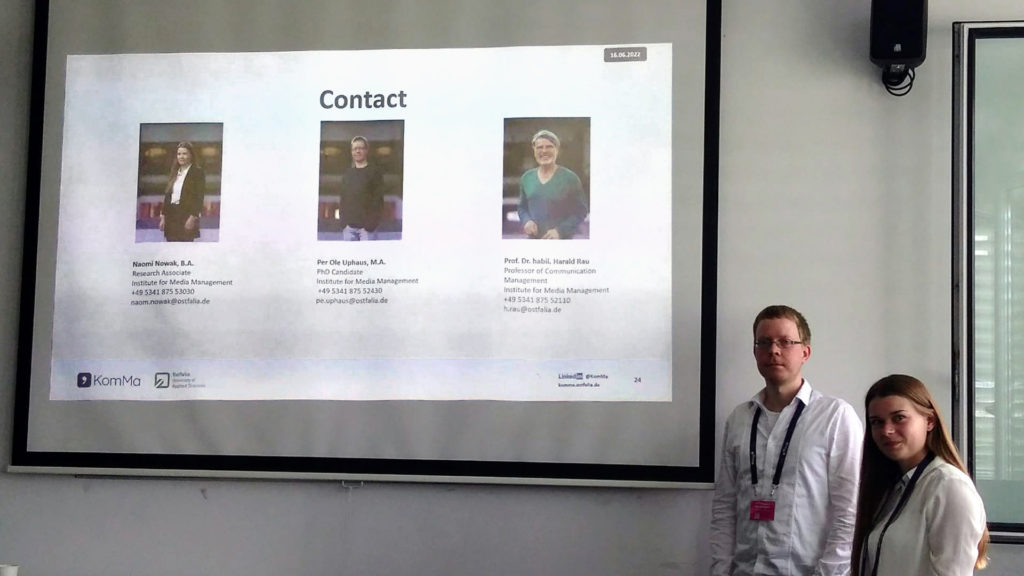
The KomMa team would like to thank the organizers Castulus Kolo, Joschka Mütterlein and Florian Haumer, as well as all attendees of emma2022 for an amazing conference. Furthermore, our special thanks go to Joaquín Cestino for his valuable input during the paper development workshop.
Here you can find deeper insights into one of the presented topics:
Abstract
Ongoing and rapid digital transformation processes are affecting businesses as well as our entire society, with business model innovations causing radical changes in consumer behavior (Mäkiö et al 2018; Skog et al. 2018). Users nowadays increasingly expect a constant availability of high-quality, real-time digital services (Mergel et al. 2019; Verhoef et al. 2021). Consequently, one of the core questions in this context seems to be which kind of technologies may endure in the near- and long-term future. With an ever-increasing demand for flexible, mobile and fast ways of communication, users also expect digital media offerings to be specifically customized according to their situational and spatial context (Peters 2016; Quy Tran et al. 2018). Since location has been identified as a key factor in predicting user behavior (Karimzadeh et al. 2018), the future potential of location-based media applications in today’s mobile information era is considered particularly high (Huang et al. 2018). With ‘location-based services’ (LBS) a user’s mobile device can be geographically localized in order to provide content tailored to the user’s current context (Junglas & Watson 2008; Raper et al. 2007; Schnabel 2009). Thus, the deployment of LBS is predestined to meet the current digital transformation of media industries – however, despite their huge potentials as a ‘lasting’ technology, the future of LBS is still considered to be uncertain due to continuous technological developments (Thomas & Thampi 2011), such as “new forms of visualisation beyond maps, such as 3D, VR, and augmented reality” (Huang et al. 2018).
This contribution aims to identify innovations that can be realized through the use of localization technologies with high future potential in various sectors of LBS usage. Previous research has so far mostly targeted this field from an IT-related perspective while social scientific traditions and approaches appear to be rather underrepresented (Authors 2020). Thus, this contribution’s findings are based on a Delphi study of two iterations addressing personal assessments of relevant international LBS-experts from a scientific or an entrepreneurial background. While this initial Delphi study was mainly aimed at providing a general look into the future of LBS – in order to derive future developments, solutions for current obstacles and impulses for future research – this contribution is specifically devoted to one subsection of the dataset generated in the Delphi study, that was discussed unexpectedly intensively by almost all participants: the aforementioned technologies with high future potential as well as their purposes and possible application areas.
The advantages and disadvantages of the Delphi method are widely discussed in social sciences: It enables the mapping of group opinions, ensures that the reputation of the experts is transferred to the study results, and can furthermore be seen as a procedure to curb bias by balancing individual biases of the experts (Steinmüller, 2019, p. 34). The quality of a Delphi study depends on clearly formulated research questions, a heterogeneous sample of competent experts, and a well-designed questionnaire (ibid.), and the most common problem seems to be that too many Delphi studies are based on poor design and an insufficient theoretical basis (Häder & Häder, 1998). The study selected for this contribution of methodological critique was some kind of a culmination of a series of previous research (Rau & Ehlers, 2017; Uphaus et al., 2019; 2021). The interviewers were thus able to draw on a wealth of previously generated knowledge, which runs directly counter to the methodological fundamental critique mentioned above. As an example, the study is here to show how suitable the method could be implemented to foster management decisions in media enterprises. By its wider angle on the market realities of a bottom-up technology, the contribution will show how media management research is able to directly support management’s decisions in the media.
Literature
Häder, M., & Häder, S. (1998). Neuere Entwicklungen bei der Delphi-Methode: Literaturbericht II (1998/05). DEU; Mannheim. https://www.ssoar.info/ssoar/handle/document/20051
Huang, H., Gartner, G., Krisp, J. M., Raubal, M., & van de Weghe, N. (2018). Location based services: ongoing evolution and research agenda. Journal of Location Based Services, 12(2), 63–93.
Junglas, I. A., & Watson, R. T. (2008). Location-based services. Communications of the ACM, 51(3), 65–69.
Krusch, A.-L. C., Uphaus, P. O., & Rau, H. (2020). Only Location: A Systematic Literature Review on Context Marketing. In 2020 IEEE International Symposium on Technology and Society (ISTAS), 2020 (pp. 204–209).
Karimzadeh, M., Zhao, Z., Gerber, F., & Braun, T. (2018). Mobile Users Location Prediction with Complex Behavior Understanding. In 2018 IEEE 43rd Conference on Local Computer Networks (LCN). Piscataway, NJ: IEEE.
Mäkiö, J., Miroliubov, A., & Zhgun, V. (2018). Digitalization – quo vadis? SHS Web of Conferences, 44, 56.
Mergel, I., Edelmann, N., & Haug, N. (2019). Defining digital transformation: Results from expert interviews. Government Information Quarterly, 36(4), 101385.
Peters, C. (2016). Spaces and Places of News Consumption. In T. Witschge, C. W. Anderson, & D. Domingo (Eds.), The SAGE Handbook of Digital Journalism (pp. 354–369). London: SAGE.
Quy Tran, H., van Phan, C., & Vien, Q.‑T. (2018). An Overview of 5G Technologies. In K. V. Arya, R. S. Bhadoria, & N. S. Chaudhari (Eds.), Emerging Wireless Communication and Network Technologies: Principle, Paradigm and Performance (pp. 59–80). Singapore: Springer.
Raper, J., Gartner, G., Karimi, H., & Rizos, C. (2007). A critical evaluation of location based services and their potential. Journal of Location Based Services, 1(1), 5–45.
Rau, H., & Ehlers, A. (2017). “Location Based Services” – alles eine Frage der Akzeptanz. In W. Seufert (Hrsg.), Media Economics revisited – (Wie) verändert das Internet die Ökonomie der Medien (S. 257-283). Baden-Baden: Nomos.
Schnabel, Christoph (2009): Datenschutz bei profilbasierten Location Based Services: Die datenschutzadäquate Gestaltung von Service-Plattformen für Mobilkommunikation. Kassel: Kassel University Press.
Skog, D. A., Wimelius, H., & Sandberg, J. (2018). Digital Disruption. Business & Information Systems Engineering, 60(5), 431–437.
Steinmüller, K. (2019). Das „klassische“ Delphi: Praktische Herausforderungen aus Sicht der Zukunftsforschung. In M. Niederberger & O. Renn (Eds.), Delphi-Verfahren in den Sozial- und Gesundheitswissenschaften: Konzept (pp. 33–54). VS Verlag für Sozialwissenschaften.
Thomas, D., & Thampi, S. M. (2011). Mobile Query Processing-Taxonomy, Issues and Challenges. In A. Abraham (Ed.), Advances in Computing and Communications: First International Conference, ACC 2011 (pp. 64–77). Berlin: Springer.
Uphaus, P. O., Neuper, O., Beringer, B., Hoffmann, L., Langenmair, S., Ehlers, A., & Rau, H. (2019). Barriers seen by potential local Providers of Applications using Location-Based Services. In G. Gartner & H. Huang (Eds.), Adjunct Proceedings of the 15th International Conference on Location Based Services (LBS 2019) (pp. 251–258). Vienna: Research Group Cartography.
Uphaus, P. O., Ehlers, A., Beringer, B., & Rau, H. (2021). Business Model Innovation in Local Journalism – how do Local Media Managers Perceive and Recognise Technical Opportunities? Manuscript Submitted for Publication.
Verhoef, P. C., Broekhuizen, T., Bart, Y., Bhattacharya, A., Qi Dong, J., Fabian, N., & Haenlein, M. (2021). Digital transformation: A multidisciplinary reflection and research agenda. Journal of Business Research, 122, 889–901.
Fünf Jahre, viele Studien und jede Menge Erkenntnisgewinn
Wie ist es um die Innovationskraft im Medienmanagement auf der regionalen Ebene bestellt? Mit einem großen Feuerwerk an Veröffentlichungen feiert KomMa den Abschluss eines seiner wichtigsten Forschungsprojekte der vergangenen Jahre. Aus dem Europäischen Fonds für regionale Entwicklung (EFRE) finanziert, arbeitete das Team über fünf Jahre hinweg an der Frage, wie sich Location-based Services (LBS), also standortbasierte Dienste für die regionale Medienkommunikation nutzen lassen, vereinte Akzeptanzstudien mit Marktanalysen und einer global angelegten Delphi-Befragung. Das KomMa-Team reiht sich mit dem Projekt und seinen Ergebnissen in eine kleine Gruppe von weltweit drei Zentren (USA, Norwegen, Salzgitter) mit Expertise auf diesem Feld ein.
Da die KomMa-Forschungen zumeist auch mit Blick auf konkrete Praxisorientierung angelegt sind, können hier die wesentlichen Erkenntnisse für die Praxis des regionalen Medienmanagements zusammengefasst werden. Wer Interesse am gesamten Abschlussbericht zum Projekt hat, einfach hier klicken
Und hier die wesentlichen Erkenntnisse für Manager regional orientierter Medien:
Erkenntnis 1: Das Management regionaler Medienhäuser ist klassisch orientiert (und will dies offenbar auch bleiben), es hat eine eher schwach ausgeprägte Fehlerkultur, lädt Mitarbeiter eher wenig zum Experimentieren mit neuen Technologien ein, reagiert auf wirtschaftlichen Druck mit Kürzungs- und Sparprogrammen und muss mit Blick auf das Projekt als eher zurückhaltend innovationsbereit eingestuft werden.
Erkenntnis 2: Innovationstreiber der Branche sind Startup-Unternehmen. Diese können am Markt vielfach noch nicht eigenständig überleben, zeigen aber gleichermaßen Entwicklungsmöglichkei-ten und Problemstellungen künftiger regionaler Medienkommunikation auf. Aus diesem Grund wurde in der Schlussphase des Projektes das Journalismus-Startup „Cluster“ als Partner mit aufgenommen.
Erkenntnis 3: Das Land Niedersachsen wird für Medieninnovatoren nicht als idealer Standort gesehen. Der Know-how-Abfluss kann in und mit dem vorliegenden Projekt nachweislich dokumentiert werden. Die Gründe liegen in einer vergleichsweise schwächer ausgeprägten VC- und Startup-Kultur, sowie in der Problematik, hochqualifizierte Mitarbeiter für Startup-Unternehmen zu begeistern. Hier rächt sich möglicherweise der Erfolg der Mobilitätsbranche in Niedersachsen, der dafür sorgt, dass hohe Einstiegsgehälter gezahlt werden können und Fachkräfte schnell vom Markt aufgesogen werden.
Regionales Medienmanagement: Potenziale längst nicht ausgeschöpft.
Regional verankerte Medienmanager sehen eher Risiken beim Einsatz von Technologien wie Location-based Services. Die Potenziale werden kaum wahrgenommen.
In diesem Blog-Beitrag bieten wir eine Reihe von Erkenntnissen der Forschung mit Location-based Services für die redaktionelle Medienarbeit in kompakter Bündelung an. Wer Interesse am gesamten Abschlussbericht hat, hier klicken
Ein Leitfaden fasst hier final Projektergebnisse zusammen. Sie stammen alle aus den verschiedenen Untersuchungen des über den Europäischen Fonds für regionale Entwicklung finanzierten Projektes Location-based Services in der regionalen Medienkommunikation. Der Leitfaden soll wesentliche Anhaltspunkte für eine erfolgreiche LBS-Implementierung im regional und an Inhalten orientierten Medienmanagement zusammentragen. Die nachstehenden Handlungsempfehlungen können damit als wesentliches auf den empirischen Erkenntnissen der Projektlaufzeit beruhendes Ergebnis gesehen werden. Sie basieren auf den Forschungsleistungen im genannten Projekt und haben national wie international Aufmerksamkeit und Anerkennung erfahren. Die zentralen Erkenntnisse der Forschungsarbeit sehen vor, dass Medienmanager…
•…LBS-Anwendungen sowohl für Indoor- als auch für Outdooranwendungen entwickeln können, es gibt für beide Anwendungsmöglichkeit passende Szenarien.
• …BLE-Beacons und WiFi-Triangulation als Tracking-Technologie berücksichtigen sollten, da diese als zielführende technologische Lösungen gesehen werden.
• …bezogen auf den Nutzer bei der Entwicklung von LBS-Apps berücksichtigen sollten, dass ein spürbarer Mehrwert gesehen wird, z.B. ein aktuelles Problem des Nutzers gelöst wird oder die ausgespielten Inhalte als unterhaltsam empfunden werden.
• …den Mehrwert der Ortungsfunktion in leicht verständliche Beschreibungen (bspw. in Form von Teasern) darstellen sollten, um zu verhindern, dass Nutzer die Ortungsfunktionen der App direkt nach der Installation wieder deaktivieren.
• …ihre LBS-Anwendungen benutzerfreundlich und einfach gestalten sollten, weil dies Nutzer am ehesten motiviert, LBS-Apps herunterzuladen und zu installieren.
• …die Funktion der „Google Maps API“ nutzen sollten, da eine klare Marktführerschaft von Google Maps im Bereich der Kartendienste gesehen wird.
• …von Partizipationstools (lokale Facebook-Gruppen oder lokale Instagram-Accounts) profi-tieren können, auf denen Journalisten aktive Diskussionen mit ihren Nutzern initiieren.
• …„Social Network Features“ wie Location-Sharing-Funktionen über Facebook und WhatsApp in ihre LBS-Anwendungen integrieren sollten, da dies von Nutzern ausdrücklich gewünscht wird.
• …LBS sub- oder hyperlokal einsetzen, zur Erschließung neuer Zielgruppen nutzen sowie für Inhalte vorsehen können, die nicht ständig aktualisiert werden müssen.
• …zeitbasierte Push-Nachrichten in ihre LBS-Apps integrieren sollten.
• …mit Gamification-Elementen, Augmented Reality oder auch Belohnungssystemen zur Gratifikation Nutzer aktiver beteiligen können.
• …aufgrund der Dominanz von Android-Betriebssystemen, LBS-Anwendungen zunächst auf Android-Systemen veröffentlichen sollten. Bezogen auf das eigene Unternehmen und dessen Entwicklung sollten Medienmanager zudem…
• …im Unternehmen eine Fehlerkultur etablieren und zu Experimenten mit neuen Technologien einladen.
• …wissen, dass sie, wenn sie sich für den Einsatz von LBS entscheiden noch immer zu den Pionieren zählen.
The future of innovative localization technologies: insights from an international Delphi study
As part of an international Delphi study concerning future potentials and challenges of location-based services (LBS), the KomMa team was able to interview some of the most prominent experts regarding LBS – from either a scientific or entrepreneurial background, ensuring particularly interdisciplinary perspectives on the research subject.
After a comprehensive evaluation of the study’s results has already been presented at the emma (European Media Management Association) 2021 in Jönköping, Sweden, a further investigation of specific innovative localization technologies mentioned by the participants during the interviews will now be the focus of a KomMa team presentation at this year’s emma conference in Munich. Below you can find an excerpt from the according abstract:
Abstract
Ongoing and rapid digital transformation processes are affecting businesses as well as our entire society, with business model innovations causing radical changes in consumer behavior (Mäkiö et al 2018; Skog et al. 2018). Users nowadays increasingly expect a constant availability of high-quality, real-time digital services (Mergel et al. 2019; Verhoef et al. 2021). Consequently, one of the core questions in this context seems to be which kind of technologies may endure in the near- and long-term future. With an ever-increasing demand for flexible, mobile and fast ways of communication, users also expect digital media offerings to be specifically customized according to their situational and spatial context (Peters 2016; Quy Tran et al. 2018). Since location has been identified as a key factor in predicting user behavior (Karimzadeh et al. 2018), the future potential of location-based media applications in today’s mobile information era is considered particularly high (Huang et al. 2018). With ‘location-based services’ (LBS) a user’s mobile device can be geographically localized in order to provide content tailored to the user’s current context (Junglas & Watson 2008; Raper et al. 2007; Schnabel 2009). Thus, the deployment of LBS is predestined to meet the current digital transformation of media industries – however, despite their huge potentials as a ‘lasting’ technology, the future of LBS is still considered to be uncertain due to continuous technological developments (Thomas & Thampi 2011), such as “new forms of visualisation beyond maps, such as 3D, VR, and augmented reality” (Huang et al. 2018).
This contribution aims to identify innovations that can be realized through the use of localization technologies with high future potential in various sectors of LBS usage. Previous research has so far mostly targeted this field from an IT-related perspective while social scientific traditions and approaches appear to be rather underrepresented (Authors 2020). Thus, this contribution’s findings are based on a Delphi study of two iterations addressing personal assessments of relevant international LBS-experts from a scientific or an entrepreneurial background. While this initial Delphi study was mainly aimed at providing a general look into the future of LBS – in order to derive future developments, solutions for current obstacles and impulses for future research – this contribution is specifically devoted to one subsection of the dataset generated in the Delphi study, that was discussed unexpectedly intensively by almost all participants: the aforementioned technologies with high future potential as well as their purposes and possible application areas.
Curious about the results of the KomMa study? Don’t miss the emma conference, June 15-17, 2022.
Literatur
Huang, H., Gartner, G., Krisp, J. M., Raubal, M., & van de Weghe, N. (2018). Location based services: ongoing evolution and research agenda. Journal of Location Based Services, 12(2), 63–93.
Junglas, I. A., & Watson, R. T. (2008). Location-based services. Communications of the ACM, 51(3), 65–69.
Krusch, A.-L. C., Uphaus, P. O., & Rau, H. (2020). Only Location: A Systematic Literature Review on Context Marketing. In 2020 IEEE International Symposium on Technology and Society (ISTAS), 2020 (pp. 204–209).
Karimzadeh, M., Zhao, Z., Gerber, F., & Braun, T. (2018). Mobile Users Location Prediction with Complex Behavior Understanding. In 2018 IEEE 43rd Conference on Local Computer Networks (LCN). Piscataway, NJ: IEEE.
Mäkiö, J., Miroliubov, A., & Zhgun, V. (2018). Digitalization – quo vadis? SHS Web of Conferences, 44, 56.
Mergel, I., Edelmann, N., & Haug, N. (2019). Defining digital transformation: Results from expert interviews. Government Information Quarterly, 36(4), 101385.
Peters, C. (2016). Spaces and Places of News Consumption. In T. Witschge, C. W. Anderson, & D. Domingo (Eds.), The SAGE Handbook of Digital Journalism (pp. 354–369). London: SAGE.
Quy Tran, H., van Phan, C., & Vien, Q.‑T. (2018). An Overview of 5G Technologies. In K. V. Arya, R. S. Bhadoria, & N. S. Chaudhari (Eds.), Emerging Wireless Communication and Network Technologies: Principle, Paradigm and Performance (pp. 59–80). Singapore: Springer.
Raper, J., Gartner, G., Karimi, H., & Rizos, C. (2007). A critical evaluation of location based services and their potential. Journal of Location Based Services, 1(1), 5–45.
Schnabel, Christoph (2009): Datenschutz bei profilbasierten Location Based Services: Die datenschutzadäquate Gestaltung von Service-Plattformen für Mobilkommunikation. Kassel: Kassel University Press.
Skog, D. A., Wimelius, H., & Sandberg, J. (2018). Digital Disruption. Business & Information Systems Engineering, 60(5), 431–437.
Thomas, D., & Thampi, S. M. (2011). Mobile Query Processing-Taxonomy, Issues and Challenges. In A. Abraham (Ed.), Advances in Computing and Communications: First International Conference, ACC 2011, Kochi, India, July 2011 Proceedings, Part I (Vol. 190, pp. 64–77). Berlin: Springer.
Verhoef, P. C., Broekhuizen, T., Bart, Y., Bhattacharya, A., Qi Dong, J., Fabian, N., & Haenlein, M. (2021). Digital transformation: A multidisciplinary reflection and research agenda. Journal of Business Research, 122, 889–901.
Bild: Jette Mertins.
Technological innovation and decisions in media management: Methodological criticism of an international Delphi study
In 2021, the KomMa team presented an international Delphi study about potentials and challenges of location-based services at the emma (European Media Management Association) 2021. In the Delphi study, KomMa examined the future of location-based services. The diversity of the panel allowed the researchers to examine interdisciplinary perspectives, discussing the topic with some of the most internationally renowned experts regarding LBS issues – investigating the subject in an unprecedented scale. At emma 2022, the KomMa team is now building upon their previous findings by presenting methodological critiques of the Delphi study. The contribution offered here is meant to critically examine the advantages and disadvantages of the Delphi method. Here is an excerpt from the abstract:
Abstract
The advantages and disadvantages of the Delphi method are widely discussed in social sciences: It enables the mapping of group opinions, ensures that the reputation of the experts is transferred to the study results, and can furthermore be seen as a procedure to curb bias by balancing individual biases of the experts (Steinmüller, 2019, p. 34). The quality of a Delphi study depends on clearly formulated research questions, a heterogeneous sample of competent experts, and a well-designed questionnaire (ibid.), and the most common problem seems to be that too many Delphi studies are based on poor design and an insufficient theoretical basis (Häder & Häder, 1998). The study selected for this contribution of methodological critique was some kind of a culmination of a series of previous research (Rau & Ehlers, 2017; Uphaus et al., 2019; 2021). The interviewers were thus able to draw on a wealth of previously generated knowledge, which runs directly counter to the methodological fundamental critique mentioned above. As an example, the study is here to show how suitable the method could be implemented to foster management decisions in media enterprises. By its wider angle on the market realities of a bottom-up technology, the contribution will show how media management research is able to directly support management’s decisions in the media.
Curious about the results of the KomMa study? Don’t miss the emma conference, June 15-17, 2022.
Literatur
Rau, H., & Ehlers, A. (2017). “Location Based Services” – alles eine Frage der Akzeptanz. In W. Seufert (Hrsg.), Media Economics revisited – (Wie) verändert das Internet die Ökonomie der Medien (S. 257-283). Baden-Baden: Nomos.
Uphaus, P. O., Neuper, O., Beringer, B., Hoffmann, L., Langenmair, S., Ehlers, A., & Rau, H. (2019). Barriers seen by potential local Providers of Applications using Location-Based Services. In G. Gartner & H. Huang (Eds.), Adjunct Proceedings of the 15th International Conference on Location Based Services (LBS 2019) (pp. 251–258). Vienna: Research Group Cartography. https://doi.org/10.34726/LBS2019.36(2019).
Uphaus, P. O., Ehlers, A., Beringer, B., & Rau, H. (2021). Business Model Innovation in Local Journalism – how do Local Media Managers Perceive and Recognise Technical Opportunities? Manuscript Submitted for Publication.
Häder, M., & Häder, S. (1998). Neuere Entwicklungen bei der Delphi-Methode: Literaturbericht II (1998/05). DEU; Mannheim. https://www.ssoar.info/ssoar/handle/document/20051
Steinmüller, K. (2019). Das „klassische“ Delphi: Praktische Herausforderungen aus Sicht der Zukunftsforschung. In M. Niederberger & O. Renn (Eds.), Delphi-Verfahren in den Sozial- und Gesundheitswissenschaften: Konzept (pp. 33–54). VS Verlag für Sozialwissenschaften. https://doi.org/10.1007/978-3-658-21657-3_2
Getting local journalism towards digital transformation: Location-based news as the key
Design sprints for the rapid development of products and for testing new business model ideas are considered a particularly modern and promising method. The KomMa-project ‘Location-Based Services in Regional Media Communication’ shows how such design sprints can be implemented successfully in applied research. The Design Sprint aims for rapid prototyping and user testing by shortening months of work and extensive discussion cycles to a single week. In this case, KomMa designed a prototype for a location-based news app with the team of the Berlin startup ‘Cluster’. Locative news as a means of getting local journalism towards digital transformation is considered a highly relevant topic in the international media management research community.
Now, an abstract by the KomMa team has been accepted for the emma 2022 conference, which will be hosted by the Macromedia University of Applied Sciences in Munich. Under this year’s conference title, “Reorganization of Media Industries: Digital Transformation, Entrepreneurship, and Regulation”, KomMa will be able to present findings from the design sprint study. Want a little taste? Here is an excerpt from the abstract:
Abstract
Despite advancing globalization, users’ interests for news concerning their immediate surroundings remain high (Arnold & Wagner, 2018, p. 179), which is why localization technology appears to offer a win-win situation for both media companies and recipients (cf. Frith, 2018; Peters, 2016). However, so far only a very small number of news applications reflect this (Rau & Ehlers, 2018; Schmitz Weiss, 2013). The solution to close this gap might be presented by startups focusing on location-based technologies in local journalism. This contribution outlines the creation of a prototype for a location-based news app by applying a so-called design sprint to the Berlin journalism startup ‘Cluster’. In advance (and to prepare the setting for the sprint) a focus group discussion with local media managers was able to identify, that localizing technologies are of particular use for city districts, the participants saw a great potential for these technologies wherever the publishing houses focus on the readers’ realities by providing possibilities to participate (cf. Thiel & Fröhlich, 2017), as well as by using virtual reality (cf. Raper et al., 2007). Despite the great potential, so far none of the (local) publishers is ready to take the first step (cf. also Ehlers & Rau, 2020).
Curious about the results of the KomMa study? Don’t miss the emma conference, June 15-17, 2022. For more information on EMMA, visit https://www.media-management.eu/emma-conferences/munich-2022/.
Currently, KomMa is working on the full paper of the study and is in great anticipation to present the results at the conference.
If you have any questions or comments, feel free to leave a comment for the KomMa team. See you at emma 2022!
Literatur
Arnold, K., & Wagner, A.‑L. (2018). Die Leistungen des Lokaljournalismus. Publizistik, 63(2), 177–206. https://doi.org/10.1007/s11616-018-0422-4
Ehlers, A., & Rau, H. (2020). Kontext für den (mobilen) Journalismus der Zukunft. https://www.ssoar.info/ssoar/handle/document/68099
Frith, J. (2018). Smartphones as Locative Media. John Wiley & Sons.
Knapp, J., Zeratsky, J., & Kowitz, B. (2016). Sprint: How to Solve Big Problems and Test New Ideas in Just Five Days. Simon and Schuster.
Nielsen, J. (1994). Estimating the number of subjects needed for a thinking aloud test. International Journal of Human-Computer Studies, 41(3), 385–397. https://doi.org/10.1006/ijhc.1994.1065
Peters, C. (2016). Spaces and places of news consumption. https://vbn.aau.dk/ws/files/243773436/Peters_Sage_Handbook_submitted.pdf
Raper, J., Gartner, G., Karimi, H., & Rizos, C. (2007). A critical evaluation of location based services and their potential. Journal of Location Based Services, 1(1), 5–45. https://doi.org/10.1080/17489720701584069
Rau, H., & Ehlers, A. (2018). Acceptance as Core Factor for the Success of LBS. In P. Kiefer, H. Huang, N. van de Weghe, & M. Raubal (Eds.), Adjunct Proceedings of the 14th International Conference on Location Based Services (pp. 207–212). ETH Zurich. https://doi.org/10.3929/ethz-b-000225620
Röper, H. (2020). Tageszeitungen 2020: Schrumpfender Markt und sinkende Vielfalt. Media Perspektiven(6), 331–352.
Schmitz Weiss, A. (2013). Exploring News Apps and Location-Based Services on the Smartphone. Journalism & Mass Communication Quarterly, 90(3), 435–456. https://doi.org/10.1177/1077699013493788
Thiel, S.‑K., & Fröhlich, P. (2017). Gamification as Motivation to Engage in Location-Based Public Participation? In Progress in Location-Based Services 2016 (pp. 399–421). Springer, Cham. https://doi.org/10.1007/978-3-319-47289-8_20
Bilder: Benjamin Rech.


